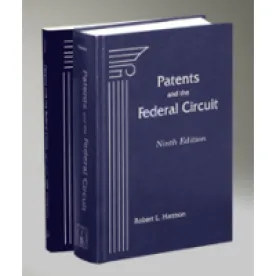In what appears to be another first for post-grant proceedings, the Patent Trial and Appeal Board (“Board”) recently granted a patent owner’s opposed motion to amend the claims of a patent during a post-grant proceeding. In fact, the Board granted (in part) two opposed motions to amend in a pair of related inter partes reviews (IPRs) filed by Riverbed Technology, Inc. against U.S. Patent Nos. 8,370,583 and 8,312,226 owned by Silver Peak Systems, Inc. See Riverbed Tech., Inc. v. Silver Peak Systems, Inc., IPR2013-00402, Paper 33; IPR2013-00403, Paper 35. Prior to the Riverbed decisions, opposed motions to amend had been successful only to the extent the motions sought to cancel claims.
In the Riverbed cases, Patent Owner Silver Peak elected to forego filing a response to the grounds of invalidity raised in Riverbed’s petitions, and instead moved to replace the challenged claims with six new claims in each patent. In each case, the Board found that Silver Peak met its burden of showing the substitute claims were patentable with respect to two of the substitute claims. The Board denied entry of the other substitute claims for various reasons, including lacking patentable distinction over a substitute claim from which they depend, and being directed to non-patent-eligible subject matter.
In its Final Written Decisions, the Board analyzed the various requirements for demonstrating entitlement to proposed claim amendments, as set forth in previous Board decisions. See, e.g., Idle Free Systems Inc. v. Bergstrom Inc., IPR 2012-00027, Paper 66; Toyota Motor Corp. v. Am. Vehicular Sciences, LLC, IPR2013-00419 (Paper 32). In particular, the Board discussed at length the requirement that a patent owner demonstrate the patentability of proposed substitute claims not only over the prior art of record, but also over prior art not of record and known to the patent owner. The Board found Silver Peak satisfied this requirement, noting that Silver Peak differentiated its claims not only over the prior art of record, but also provided a discussion of the prior art of which it was generally aware, provided examples of references that taught certain elements known in the art from other contexts, and differentiated the substitute claims over these references.
The Board also addressed Riverbed’s arguments that Silver Peak’s motion to amend was deficient because it did not include an expert declaration and it did not explicitly discuss what constitutes the level of “ordinary skill the art.” With respect to expert declarations in motions to amend, the Board noted that, although “[t]estimony from a technical expert certainly can be helpful to show what would have been known to a person of ordinary skill in the art and explain the significance of features added in a proposed substitute claim . . . [i]t is not a prerequisite for a motion to amend.” Riverbed Tech., IPR2013-00402, Paper 33, p. 25. Regarding discussion of the level of ordinary skill the art, the Board noted that Silver Peak provided an explanation of what a person of ordinary skill in the art would have known at the time of the ‘266 Patent was filed, and cited prior art references (both of record and not of record) in support of its explanation. The Board found that the prior art references and Silver Peak’s accompanying explanation provided sufficient guidance as to the level of ordinary skill in the art.
The Riverbed decisions come on the heels of public comments received in response to the Patent Office’s request for public input on the Board’s practice regarding motions to amend, see Request for Comments on Trial Proceedings Under the America Invents Act Before the Patent Trial & Appeal Board, 79 FR 36474 (June 27, 2014), many of which criticized the Board-imposed requirements for motions to amend as being overly burdensome. While it remains to be seen whether the Riverbed decisions are the start of a new trend at the Patent Trial and Appeal Board, for now, the Riverbed decisions provide another useful guidepost for patent owners on the road to successfully amending claims during post-grant proceedings.




 />i
/>i
